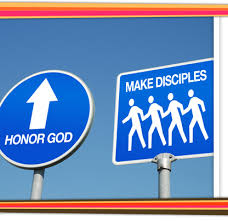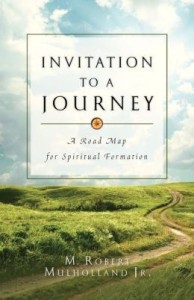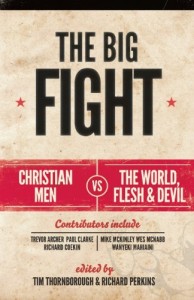In their book, Whatever Happened to the Human Race, Francis Schaeffer and C. Everett Koop describe the horrors of Nazi Germany.
The first to be killed in Nazi Germany were the infirm, the senile, and the mentally retarded. Then came the aged and the “defective” children. Eventually, as World War II approached, the doomed undesirables included epileptics, children with badly modeled ears and even bed-wetters. The transportation of people to these killing centers was carried out by “The Charitable Transport Company for the Sick.” The plan then was to kill all Jews and Poles and to cut down the Russian population by 30,000,000.
We’re all struck by this great Holocaust and wonder how it ever could’ve happened. Leo Alexander, who served as a consultant to the Secretary of War in World War II and who was on duty with the office of Chief Counselor for the War Crimes tribunal in Nuremberg, says that what happened in Nazi Germany “all started with the acceptance of the attitude that there is such a thing as life not worthy to be lived.” In German, it was called lebensunwertes leben, which roughly translated means “life unworthy of being lived.”
An elderly German man who lived through the Holocaust tells the following story. These are his words.
I always considered myself a Christian. I attended a church since I was a small boy. We had heard the stories of what was happening to the Jews; but like most people in America today, we tried to distance ourselves from the reality of what was really taking place. What could anyone do to stop it?
A railroad track ran behind our small church, and each Sunday morning we would hear the whistle from a distance and then the clacking of the wheels moving over the track. We became disturbed when one Sunday we heard cries coming from the train as it passed by. We grimly realized that the train was carrying Jews.
Week after week that train whistle would blow. We would dread to hear the sound of those old wheels because we knew that the Jews would begin to cry out to us as they passed our church. It was so terribly disturbing!
We could do nothing to help these poor people, yet their screams tormented us. We knew exactly at what time that whistle would blow, and we decided the only way to keep from being so disturbed by the cries was to start singing our hymns. If some of the screams reached our ears, we’d just sing a little louder until we could hear them no more.
Years have passed, and no one talks about it much anymore, but I still hear that train whistle in my sleep. I can still hear them crying out for help. God forgive all of us who called ourselves Christians, yet did nothing to intervene.
Does this sound anything like the United States in 2018? Are we tempted to cover our ears and just “sing a little louder”? As we face a virtual holocaust on the dignity and sanctity of life, are we tempted to cover our ears and just sing a little louder?
It all began with “the attitude that there is such a thing as a life not worthy to be lived”—lebensunwertes leben. We may think we’re beyond that. We may think that only oppressive Nazi regimes would pursue this. Surely, modern people wouldn’t think that there’s such a thing as a life not worthy to be lived.
But listen to this. Many people in the European country of Iceland have recently been bragging that they’ve virtually eliminated Down Syndrome from their country.
We may think this is good news. Have they found a cure for Down Syndrome? Wouldn’t that be fantastic! They could share it with the rest of the world!
But, no, they haven’t found a cure for Down Syndrome. They’ve just reached the point where virtually 100% of the babies who are diagnosed with Down Syndrome are killed in their mothers’ wombs. So, they’re bragging that they’ve virtually eliminated Down Syndrome from their country.
But Iceland isn’t alone. In Denmark, 98% of babies who receive a prenatal diagnosis of Down Syndrome will be aborted. In the UK, the number is 90%. In France, it’s 77%. In the USA, it’s 67%. That’s 2 out of every 3 babies who are diagnosed with Down Syndrome are aborted. Do these babies represent lives not worthy to be lived? Are their lives lebensunwertes leben? Are we any different than the Nazis?
Have you ever thought, “If that person really knew me, he/she wouldn’t love me”? Many of us have deep, dark secrets in our lives that we don’t share with anyone for fear that people won’t love us if they know who we really are.
We may fear that we’ve done something in the past or that we’ve had something done to us in the past that makes us unlovable. In Psalm 139, David writes,
Psalm 139:1
O Lord, you have searched me and known me!
These two verbs “search” and “know” are going to form “book ends” on this psalm. They appear here in the opening verse, and the same two verbs appear again in the same order in the second to last verse of the psalm.
The verb “search”—in the original language—means to consider something in detail, to analyze something so that you can discover its essential features. The verb “know” is used multiple times throughout this psalm [verses 1, 2, 4, and 23 (x2)]. In the original language, it means to become familiar with something through experience.
David’s point in using these two verbs in the opening phrase of this psalm is to let the reader know that God’s knowledge of us is both complete and intimate. There’s nothing that God doesn’t know about us. We may keep secrets from our parents. We may keep secrets from our siblings. We may keep secrets from our spouses. But we keep no secrets from God (cf. 139:2–6).
David declares in verse 7,
Psalm 139:7
Where shall I go from your Spirit? Or where shall I flee from your presence?
This are rhetorical questions. They’re questions with an obvious correct answer. They’re questions designed to get us thinking. Where can we go from God’s Spirit? No where! Where can we flee from his presence? No where!
God is with us and he loves us. There are no invisible people in God’s eyes. We may make people invisible in our eyes, but there aren’t any invisible people in God’s eyes.
We make people invisible by refusing to think about them, by refusing to have open, honest conversations about them.
We take a young woman who’s a part of the sex industry, and pornography turns her into an object of lust. In our mind’s eye, she’s no longer someone created in the image of God. She’s become invisible.
We take the refugee who is fleeing persecution, and we complain that his presence here makes us feel uncomfortable. In our mind’s eye, he’s no longer someone created in the image of God. He’s become invisible.
We take the baby in the womb and we declare that what the mother does with what’s in her body is her choice. In our mind’s eye, both the mother and the baby are no longer people created in the image of God. They’ve both become invisible.
We take the elderly and the infirm and we warehouse them away and encourage them to choose death with dignity. In our mind’s eye, that old woman’s no longer someone created in the image of God. She’s become invisible.
God is the master craftsman (cf. 139:13–16). He forms us while we’re in our mother’s womb. God creates and gives life and God values human life—all human life.
God values the life of the women who is being sex trafficked.
He values the life of the refugee who’s fleeing persecution.
He values the life of the mother and of the baby in her womb.
And he values the life of elderly and infirm.
God values all human life because unlike any other part of creation, human life is created in the image of God.
Genesis 1:26–27
Then God said, “Let us make man in our image after our likeness. . . . So God created man in his own image, in the image of God he created him; male and female he created them.
He formed us. He knitted us together. We were intricately woven together.This is poetic language, but it’s language that speaks of being carefully and thoughtfully put together. We are fearfully and wonderfully made (139:14).
But when it comes to the topic of abortion, we’ve taken this beautifully poetic language and we’ve exchanged it with cold, sterile, and sanitary terms like “pulling the plug” or “making a choice” or “fetal tissue.” And in so doing, we’ve removed ourselves from what’s really happening—the taking a human life.
There are only 7 countries in the world that allow an elective abortion after 24-weeks. And of those seven countries, only four countries allow for elective abortion at any point in the pregnancy—right up to the point of delivery:
- The United States of America,
- Vietnam,
- China, and
- North Korea.
How’s that for company to keep? Vietnam, China, and North Korea. All three of those countries are among the top of the list of countries where human rights are regularly violated. And that’s the company we keep in allowing abortion for any reason at any time during a pregnancy.
Statistics tells us that 3 in 10 women in the local church have had at least one abortion. But abortion isn’t just a women’s issue. Women don’t get pregnant without the help of a man. In many cases—not all, but in many cases—women choose abortion because the man leaves her with little choice.
Now, to be clear, having an abortion or coercing your girlfriend or wife to have an abortion isn’t an unforgiveable sin. It’s not. It is a sin. But there is forgiveness and grace to be found at the cross. God’s grace can cover all of our sins.
But we have a crisis on our hands. There have been over 60 million abortions in the USA since 1973. These are human beings. These are human lives.
But there’s also some good news here as well. There’s been a steady decline in the number of abortions since 1990. In 1990, there were 1.6 million abortions. That was the high-water mark of abortions in the USA.
In 2017, there were an estimated 900,000 abortions. That’s still a lot. That’s one abortion every 8 seconds. But that’s over a 40% decrease since 1990, and that’s good news.
Statistics tell us that the younger people are, the more opposed they are to abortion. And I think I know why. I think it’s the sonogram or ultrasound machine. We have a generation of adults now who grew up with a sonogram picture of their brother or sister taped to the fridge. When you use a sonogram machine to look at what’s happening in a mother’s womb, there’s only one conclusion you can come to: LIFE! What’s in mommy’s belly is LIFE!
And now we have generations of young people who have grown up seeing these pictures of their brothers and sisters in mommy’s belly. Some have even gone with mommy to the doctor’s office to see the baby in the womb. There’s no other way to say it. That’s a human baby in her belly.
We need to celebrate the sanctity of life. We need to celebrate the sanctity of life from conception until natural death.
So, you may be wondering what you can do. There are any number of things you can do. Here are seven things you might consider.
- First, if you’re a parent, start by educating your own children on these issues. Show them what the Bible has to say about this.
- Second, volunteer at your local crisis pregnancy center. They’d love to hear from you.
- Third, volunteer at a homeless shelter. When we talk about the sanctity of life, we’re not only talking about babies in the womb. Every human being on the planet is created in the image of God. All human life is precious.
- Fifth, volunteer at an assisted-living facility. Some of the men and women who live in these facilities feel like they’ve been forgotten. They feel as if they’ve been warehoused in a facility and left there to die. Make it a part of your schedule to go and visit the residents of a local assisted-living facility.
- Sixth, learn to teach English as a Second Language (ESL). There are refugees who have come to America because they’re fleeing persecution in their home countries. And they live here now. They want to speak better English. They just need someone to come alongside them and teach them.
- Seventh, volunteer at a battered women’s shelter. These shelters serve as a temporary place of residence for women who’ve been in relationships that have been marked by domestic violence.
- Eighth, become a foster parent. There are children all over this country who need a safe place to live. Without the foster-care-system, many of these children would be homeless. Show these children the love of Christ by bringing them into your homes.
Now, we can’t do all of these things, but that doesn’t mean we can’t do something. These are just a few of the things you can do. You can do many of these things either individually or as a family.
The point here is simple. There are men and women, boys and girls, all around us, all of whom are created in the image of God, many of whom are hurting, many of whom need to experience the love of God.
What can we do to show them the love of God?
 inning, since Abraham. We’re reminded of God’s faithfulness to his people when God rescued them from Egypt (verses 9ff). We’re reminded of God’s faithfulness to his people while they wandered in the wilderness (verse 21). And we’re reminded of God’s faithfulness during the period of the judges (verse 27).
inning, since Abraham. We’re reminded of God’s faithfulness to his people when God rescued them from Egypt (verses 9ff). We’re reminded of God’s faithfulness to his people while they wandered in the wilderness (verse 21). And we’re reminded of God’s faithfulness during the period of the judges (verse 27).




